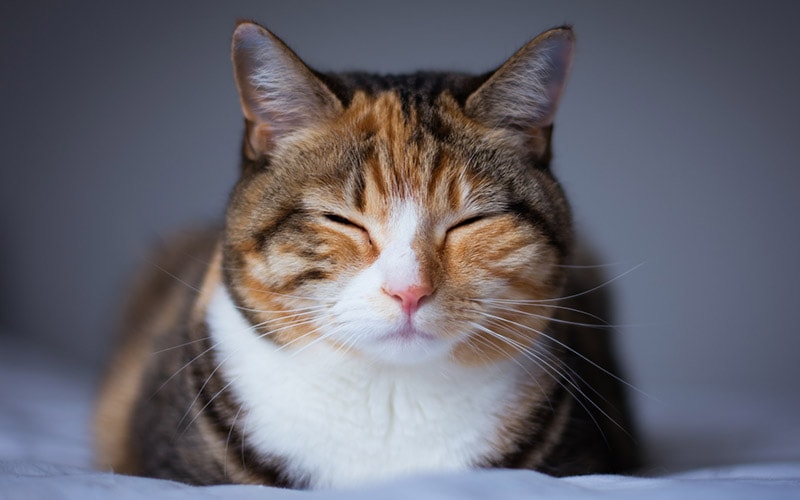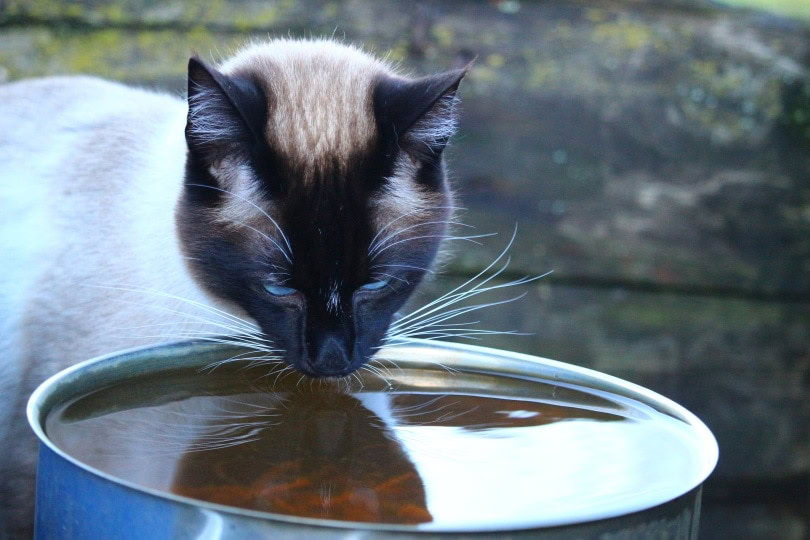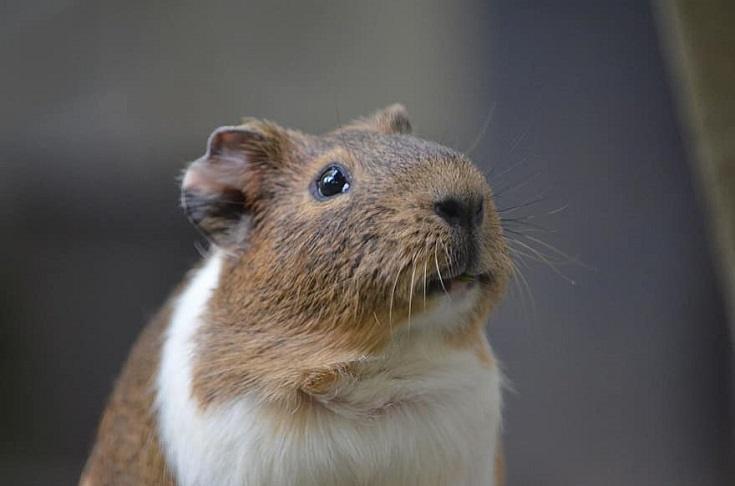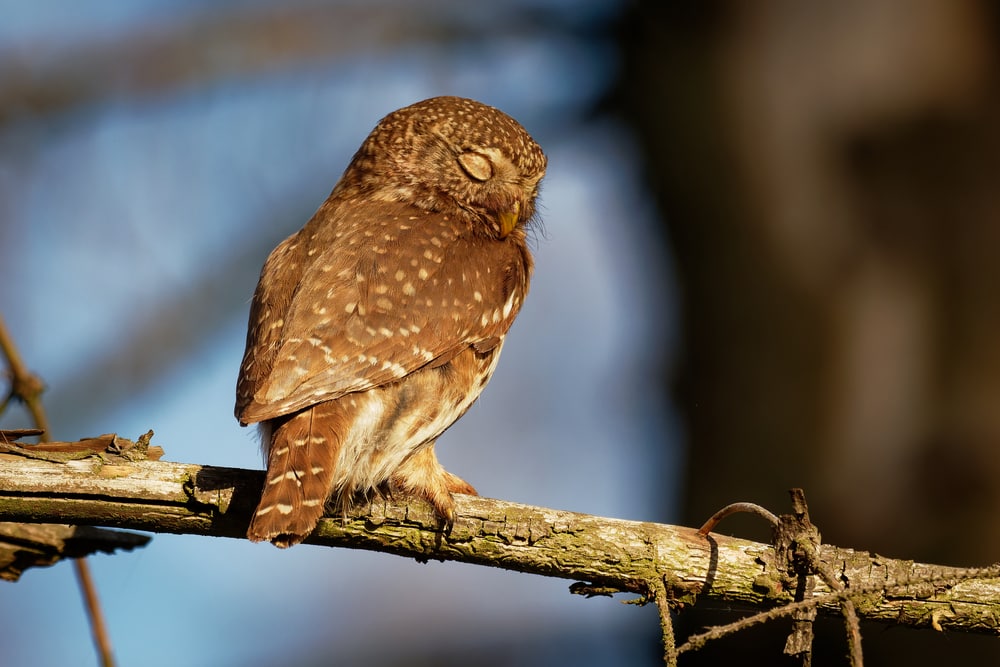VET APPROVED

The information is current and up-to-date in accordance with the latest veterinarian research.
Learn more »Cats sleep a lot, as most humans who have ever lived with a feline companion can attest. Adult cats often sleep for 15 hours a day, but that can extend to 18 hours! Healthy cats sleep a lot for several reasons, including preserving energy for short, high-energy activity spurts, but cats also sleep when bored or not feeling well.
Changes in sleeping patterns are more concerning than when pets regularly spend hours snoozing. Read on for eight possible reasons why cats sleep so much.
The 8 Common Reasons Why Cats Sleep So Much
1. Cats Are Crepuscular Creatures
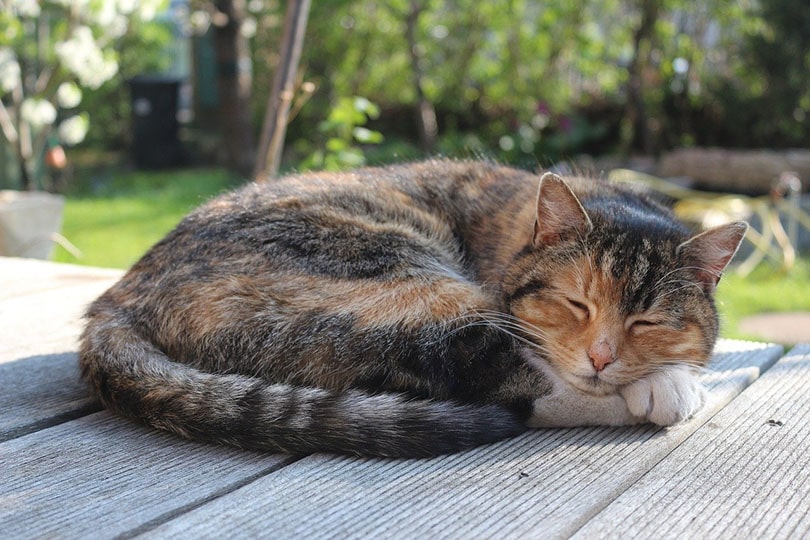
Cats prefer to hunt around dusk and dawn, and their nose, eyes, ears, and whiskers give them a serious advantage when hunting in low light. Many cats naturally wake up around sunrise and then snooze during the day, particularly if their favorite person is gone. If your cat sleeps a ton during the day, it may just be because your pet gets active when you’re asleep.
2. Cats Sleep to Conserve Energy
Cats are predators that rely on sustained bursts of energy to stalk, hunt, and catch prey. All of that activity requires lots of energy, so kitties need plenty of rest to be ready to spring into action. Domestic cats retain many of the predator instincts of their wild relatives that often snooze during the day when not hunting or patrolling their territory. Your cat may just be storing energy for later escapades.
Figuring out how to show love and adoration to your cat while you're not around can be challenging. The innovative design of the Hepper Nest Bed keeps them warm, supported, and cozy. The soft yet durable foam base is lined with a removable self-warming sherpa insert, geared to get your cat through their daily naps and lounge sessions. Having a bed this effective will strengthen the bond with your feline companion, since they will be well-rested and ready for playtime when you return.
- HAPPY COZY CATS - Your kitty will bask in luxurious sherpa-lined comfort while feeling warm, safe,...
- MODERN DESIGN - Contemporary styling with upholstered fabric construction; just like your human...
- WARM FLEECE LINER - Self warming, thick sherpa fleece with microfiber trim.
At PangoVet, we’ve admired Hepper for many years and decided to take a controlling ownership interest so that we could benefit from the outstanding designs of this cool cat company!
3. Cats Sleep When Bored
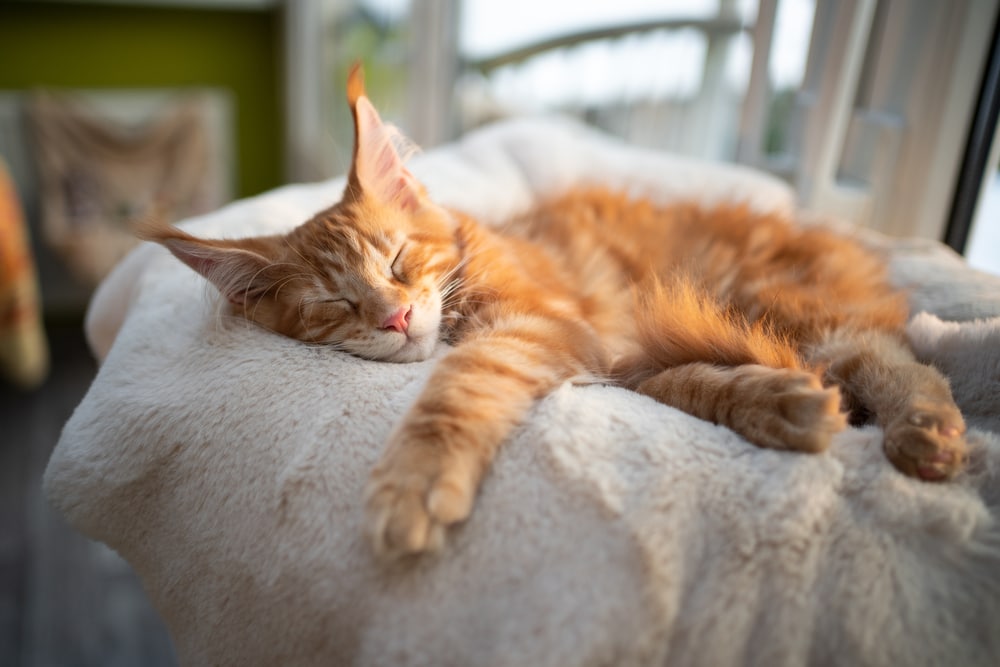
Some cats snooze when they’re bored! If your cat naps while you’re away or busy, it could be because they don’t have anything to keep them occupied. Cats do best when they have many places to explore and activities to engage their minds. Food puzzles require cats to use their curiosity, problem-solving skills, and paws to find and liberate treats.
Scratching posts and interactive toys also go a long way toward keeping cats happy and entertained, and there are electronic toys you can program to engage your cat while you’re away from home.
4. Cats Sleep When Sick
Cats that aren’t feeling well, are in pain, or suffering from an underlying health condition often sleep more than normal. Illness and recovery require energy, so it’s normal for sick people and cats to be tired as their bodies recover. However, changes in sleeping patterns can signify illness in some cats. So, reach out to a veterinarian if your companion is suddenly sleeping more or less than normal, particularly if they’re exhibiting other signs of illness, such as lack of appetite, increased drinking, weight loss, lethargy, or others. An early diagnosis can benefit the treatment process considerably.
5. Cats Sleep When Anxious
Cats often sleep more when they are anxious or stressed. Other signs of feline stress include hiding or withdrawing. Some cats vomit or have diarrhea, and others begin to eat or drink less. Changes in household routines often result in feline anxiety.
New babies and pets are other common causes of stress in cats. Creating a safe space for your cat where they can hang out when things start becoming too much can help lower their stress level. Make sure the room has a litter box, food, water, and plenty of high perches where your cat can relax in peace.
6. Cats Sleep More at Certain Ages
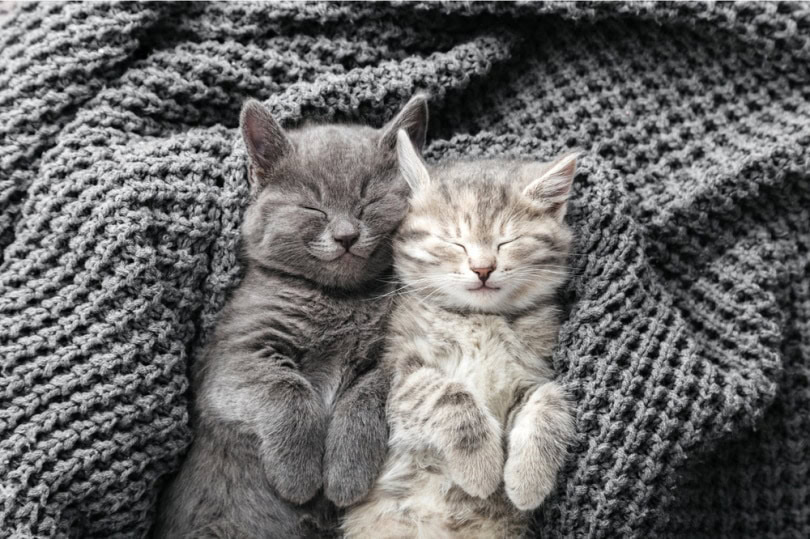
Cats often sleep more as they age and when they’re very young. Just like humans, older cats begin to slow down over time. Once cats hit their senior years, it’s normal for them to spend more hours napping. But make sure to take senior cats for the twice-yearly checkups recommended by veterinarians to stay on top of their health, as some of the chronic underlying health issues common at this age may explain why your cat is sleeping more than they used to.
Cats are generally considered senior when they hit 10 years of age, and those over 15 qualify as geriatric. If your cat has hit their golden years, their increased sleeping may just be part of the natural aging process, but make sure your vet has ruled out any medical causes first. Kittens can sleep for up to 22 hours per day during the first two weeks of life, after which it slowly reduces to around 18 hours.
7. Cats Often Nap
Your cat may be napping when you think they are sleeping. While cats spend a fair amount of time sleeping, they also spend plenty of hours just napping, a sort of light snooze from which they can wake in a snap. Cats often nap when hanging out with their favorite people, as it allows them to relax and keep an eye on you at the same time.
Naps are frequent throughout the day and often followed by longer sleep sessions. On the other hand, humans tend to have one long sleep session at night.
8. Cats Sleep More in Bad Weather
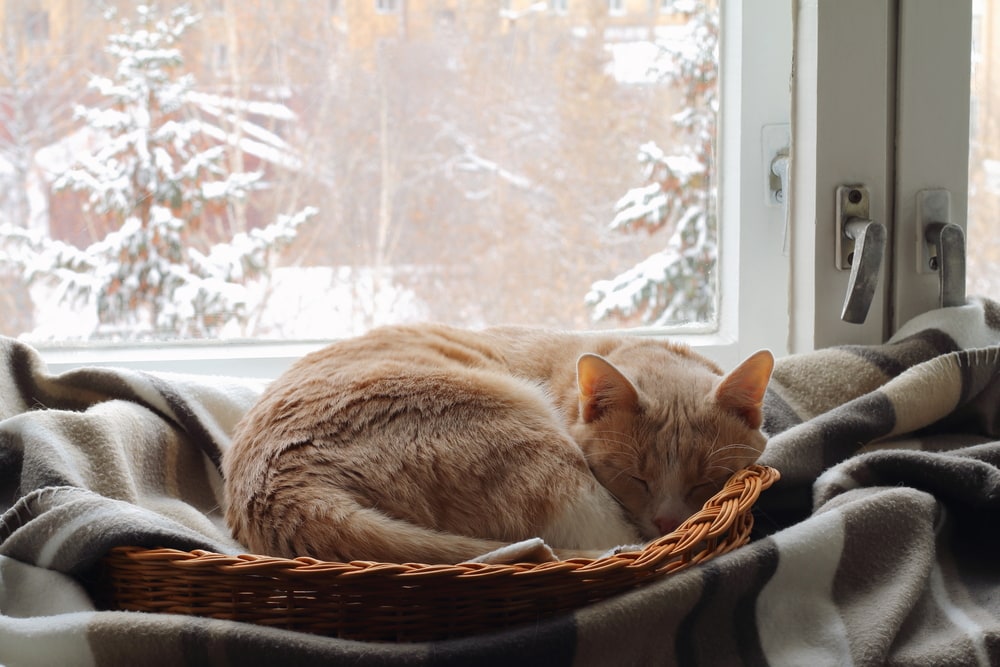
Cats often curl up and snooze when it’s cold and rainy outside. Even indoor-only cats seek warmth and comfort on those cold, miserable days when humans long to curl up with a book and a warm cup of tea. Several cat owners have mentioned that their cat companions sleep more during foul weather. Make sure your cat has warm places to snuggle if you live in a location where the mercury regularly drops. Cats like it warm, but they’re generally fine if the thermostat hovers around 70ºF.

Conclusion
Cats sleep a lot because it is a deeply ingrained part of their feline nature. It is normal for a healthy adult cat to sleep 15–18 hours daily, but kittens and senior cats often snooze even more! Cats sleep to conserve energy, so they have plenty in the tank when it’s time to stalk, run, and spring. However, stress and boredom can also cause some cats to spend more time asleep, as can various health conditions and pain. Reach out to a veterinarian if your cat suddenly starts sleeping more or less than usual.
Related Reads:
Featured Image Credit: Jack Brind, Unsplash
